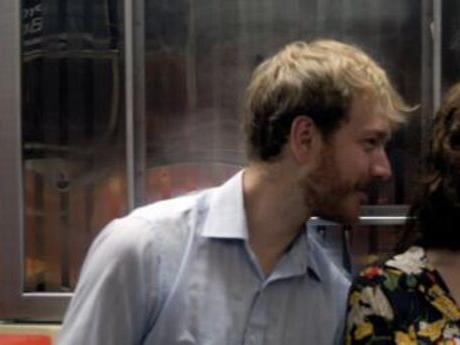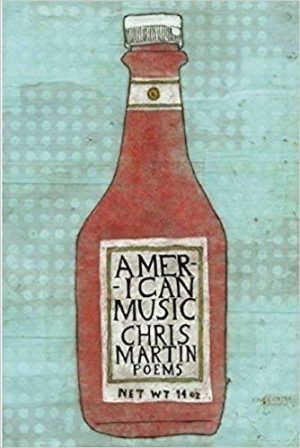New American Poets
New American Poets: Chris Martin

The Harmony of Overwhelming
Perhaps I exist to ruin
Objectivity, to dull
The shears that this insular
Art becomes, our proclivities
Mingling in the mangling
Street, since I moved to New York
I have not stopped
Sneezing, though I did pause
In writing this poem
To hunt down a fearsome
Silverfish, which undulatingly flew
Across the keys, even
If it never sleeps
It does awaken and one peculiar
Moment you find yourself
In the unfriendly grip
Of the octopus so
Is it in vain that I hope
To be less of a stranger
To you while at the same time trying
To avoid the disgrace of being
Well known? The city is
Harmonious mass, an Amazon
Of commerce, even
If it is the harmony of overwhelming
And collective murder, I had expected to lose
My virginity to my babysitter
At the age of twelve, Breton
Wished to keep the book
Ajar, the song says I can't be held
Accountable for the things
That I've seen, but I refuse to
Deny the refuse
Of our lives the warmth
Of witness, I will not submit
Myself to loopholes
In recursion, the only phone
Call I got all
Day was a wrong
Number, yet that also
Has not stopped
Me from feeling a consequent
Note among many, kind
Words no less
Instructive and I'm off
To the zoo for distant salutations
To the wallaby I've dubbed
Bushwick Bill, also to look in
On a deteriorating letter
I've stuck between the wires
Of a fence running
Along the ravine, all my
Life I've dreamt
I was able to see translucent
Arrows composing the air and thought
It feasible to spend
An afternoon not breathing
But when I stop
To remind myself of the way you
Smell when we're lying
In bed I know it
Would be a terrible waste
Not unlike the beauty
Of insects, this apparitional
Night, this soft, silly
Music that has become more
Meaningful than I could imagine.
From American Music (Copper Canyon Press, 2007) with the permission of the author. All rights reserved.
American Music is ostensibly a primer for what one shouldn't do at this stage in contemporary poetry. The tone is too effusive, the perspective too sexed, the references too low, the form too formal, and the content way too New York. What I wanted was to allow a particular consciousness, however fractured or perforated, to communicate something of its experience that exceeded the transactions of prose. This desire took, too put it broadly, an honest approach. For me, the direct way to access this level of honesty was to permit the variegated presences—everything I read, saw, and especially heard—to enter and transform the work, forging a motley chorus of sorts. In terms of its formal aims, I was interested in echoing the voice's unevenness with lines that always swerved past or stopped short of their predecessors, keeping things warbling and unstable.
The formal imbalance of those tercets, I think, led to the more conceptual framework of my second book, Becoming Weather, where disequilibrium becomes an unpredictable yet grounding force for the words. This book is composed of three long poems, the first of which actually began as a failed long American Music-style poem that I flayed into something wholly disparate. This process mirrored its conceptual conceit, which is to comment on how the body is forever subject to anatomizing forces that intend to still or abstract it into some semblance of balance. The second poem, "The Small Dance," endeavors to get the poem back on its feet and chart the resulting dynamics as it staggered around the page. The final poem, "This False Peace," uses a fractured version of prose as an indictment of the promises and uses of peace as an idea. The whole book, as far as I understand it, is an entreaty against balance or equilibrium or stillness. I am interested in forms that might actually conduct something of the body's inherent disequilibrium as it moves, unpredictably and obliquely, through the aforementioned flux of the world.
More recently, my concerns have been drifting around mistakes and songs. It is my small ambition to write the first major work of Mistake-ism, a genre proposed by Harmony Korine with his film Gummo. As for songs, I have been reading up on cavemen and neurobiology and continental philosophy, trying to discover something about the ontological necessity of song. My critical work on rap and the Aboriginal Australian tradition of Songlines has come in pretty handy on this front. I'm thinking of all my latest poems under the tentative heading of Hymns. As I see it, one of the duties a poet can undertake remains the endless enumeration of the universe. Though invention will always be a crucial aspect of poetic work, poets are also here to remind us of the marvel of existence, no matter how banal the territory of the poem gets. And, insofar as we are singing beings, it seems given to us to sing the universe back to itself. Like I always say, keep an open mouth.



